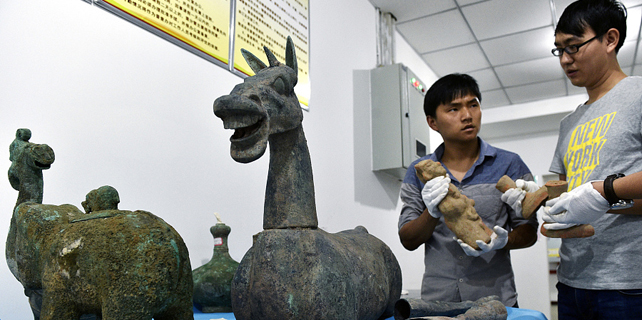US seeks forfeiture of $30m in properties in EB-5 scheme
Lawsuits have been filed seeking the forfeiture of nine properties across Southern California worth more than $30 million and allegedly purchased with proceeds from an EB-5 visa fraud scheme.
The nine lawsuits allege that much of the $50 million collected by the California Investment Immigration Fund (CIIF) from primarily Chinese investors either was refunded to the foreign nationals or was stolen by participants in the scheme.
Victoria Chan, an attorney, and her father, Tat Chan, operated the CIIF from 2008 until this year.
In April, federal agents raided several California locations related to the case, including the CIIF office in San Gabriel, a home in Arcadia and a townhouse in El Monte, and a Porsche SUV of the suspects.
"Rather than legitimately investing the funds into American businesses, CIIF either refunded the funds to the EB-5 investors while the investors' EB-5 petitions were pending, in direct violation of the EB-5 program, or stole millions of dollars to use for personal expenditures, including buying million-dollar homes," according to the lawsuits.
The purchases were made with proceeds derived from mail fraud, wire fraud or visa fraud and the purchases themselves constituted money laundering, according to the complaints.
The nine properties include a commercial property in the City of Industry valued at more than $3 million, five residences in the cities of Rancho Cucamonga, Arcadia (worth approximately $4 million), Diamond Bar, Riverside and Duarte (valued at $5.5 million), and parcels of land in Ontario, Indio (worth nearly $6 million) and Rancho Cucamonga (valued at more than $7.7 million).
The investigators found no construction took place at any of the proposed project locations and few actual full-time American jobs were created.
The lawsuits also allege that many Chinese nationals obtained US green cards through the EB-5 program improperly.
The EB-5 program allows eligible immigrant investors to obtain a path to permanent US residence — known as the green card — by investing at least $1 million in a US business that will create at least 10 jobs for American workers. Investors who choose a rural area or an area with high unemployment have to invest $500,000.
Among Chan's clients were at least three fugitives on China's 100 most-wanted list, charged with crimes like bribery. They allegedly were able to obtain green cards based on false information.
Xu Jin, listed as No 13 on the list, was director of the Development and Reform Commission in Wuhan, Hubei province. In China, he is accused of "embezzlement, accepting bribes, abuse of power" and faces a maximum punishment of death.
His wife, Liu Fang, listed as No 66 on the list, was the deputy director of the Hubei branch of China Life Insurance Co. She is accused of "accepting bribes" and also faces a possible death penalty.
The EB-5 fraud scheme is still under investigation by the FBI and US Immigration and Customs Enforcement's Homeland Security Investigations.









